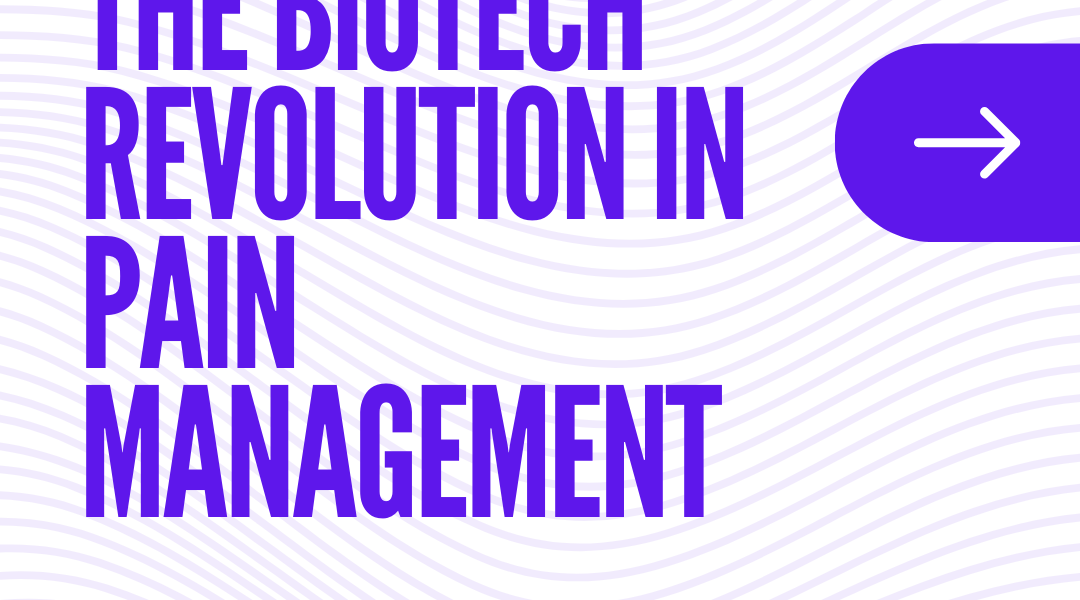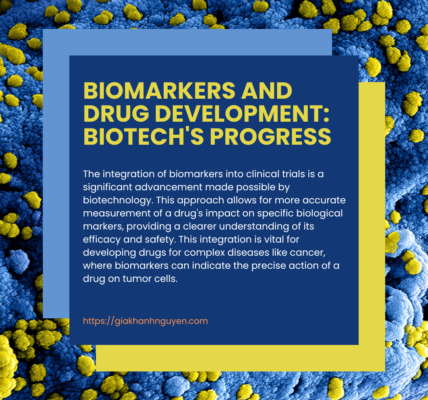The realm of pain management is undergoing a profound transformation, thanks to the advancements in biotechnology. This revolution is reshaping how we understand, diagnose, and treat pain, bringing new hope to millions who suffer from chronic and acute pain conditions.
Understanding Pain at the Molecular Level
Biotechnology is enabling a deeper understanding of pain at the molecular level. By studying the genetic and biochemical pathways involved in pain perception, biotech research is uncovering new targets for pain relief. This molecular insight is crucial for developing more effective and targeted pain therapies.
Innovative Drug Therapies
One of the significant contributions of biotechnology in pain management is the development of innovative drug therapies. Biotech companies are working on novel analgesics that can provide relief without the side effects and addiction risks associated with traditional opioids. These include drugs that target specific pain pathways and biologics that modulate the body’s pain response.
Personalized Pain Management
Biotechnology is paving the way for personalized pain management strategies. By analyzing individual genetic profiles, biotech approaches can predict how patients will respond to various pain medications, enabling tailored treatment plans that maximize efficacy and minimize adverse reactions.
Advancements in Non-Pharmacological Therapies
Beyond drug therapies, biotechnology is also advancing non-pharmacological approaches to pain management. Techniques like gene therapy and regenerative medicine, including stem cell therapy, are being explored for their potential to repair damaged tissues and alleviate pain at its source.
Wearable Tech and Pain Monitoring
Wearable technology, enhanced by biotech innovations, is transforming pain monitoring and management. These devices can track physiological markers related to pain, providing real-time data that can be used to adjust treatment plans promptly. This technology is especially beneficial for managing chronic pain conditions.
Overcoming Challenges in Pain Treatment
Despite these advancements, challenges remain in pain management. Biotech research is addressing issues like treatment accessibility, patient compliance, and the development of non-addictive pain relief options. The goal is to offer more effective, safer, and patient-friendly pain management solutions.
Integrating Digital Health in Pain Management
The integration of digital health technologies is a notable aspect of the biotech revolution in pain management. Telemedicine and digital health platforms are facilitating remote monitoring and management of pain, making treatment more accessible, especially in underserved areas. These platforms also enable better patient-doctor communication, ensuring continuous and effective pain management.
Biotech and Alternative Pain Therapies
Biotechnology is also influencing the development of alternative pain therapies. Research into compounds like cannabinoids and their interaction with the body’s endocannabinoid system is a result of biotechnological advancements. Such research opens up new avenues for pain treatment that are potentially less reliant on conventional pharmaceuticals.
The Role of AI and Machine Learning
Artificial Intelligence (AI) and machine learning are significantly contributing to pain management research. These technologies are being used to analyze clinical trial data, patient reports, and genetic information to uncover new insights into pain mechanisms and treatment effectiveness. AI-driven models can also help in predicting patient responses to various treatments, optimizing pain management strategies.
Challenges in Ethical and Regulatory Aspects
With these advancements come ethical and regulatory challenges. The development of new biotech-based pain treatments requires careful consideration of ethical implications, particularly in areas like gene therapy and the use of biologically derived substances. Navigating the regulatory pathways for these new treatments is also crucial for ensuring their safety and efficacy.
Fostering Education and Awareness
Education and awareness are critical in the biotech revolution in pain management. Educating healthcare professionals about new biotech treatments and technologies is essential for their adoption and effective use. Similarly, patient education regarding these new options can empower individuals to make informed decisions about their pain management.
The Future of Pain Management with Biotech
Looking ahead, the future of pain management with biotechnology appears promising. Ongoing research and development in this field are likely to yield more innovative and effective pain management solutions. The focus is not only on alleviating pain but also on improving overall patient well-being and quality of life.
Conclusion
The biotech revolution in pain management represents a significant shift towards more precise, effective, and personalized care. As biotechnology continues to advance, its impact on pain management is set to redefine treatment paradigms, offering new hope and possibilities for those living with pain. The future of pain management, guided by biotechnological innovations, is poised to bring substantial improvements in patient care and treatment outcomes.

